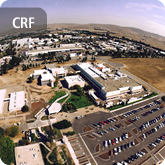On October 24, 2012, the National Academy of Sciences (NAS) released the prepublication version of the report, “Sustainable Development of Algal Biofuels.”
Although algal biofuels are gaining attention as a domestic renewable fuel source, the study found that with current technologies, scaling up production to meet even 5% of U.S. transportation fuel needs could create unsustainable demands for energy, water, and nutrient resources. R&D could yield innovations to address these challenges, but determining if algal biofuels are a viable fuel alternative will involve comparing the environmental, economic, and social impacts of algal biofuel production and use to those associated with petroleum-based fuels and other fuel sources.
This report was produced at the request of, and with funding support from, the DOE. While on assignment at DOE during FY10–11, Ron Pate (in Sandia’s Earth Systems Analysis Dept.) led the initiation of this NAS study on behalf of the DOE Biomass Program within the DOE’s Office of Energy Efficiency and Renewable Energy (DOE-EERE). He also provided the kick-off briefing to the committee on behalf of DOE during their first public meeting in March 2011, and served as the DOE liaison with the NAS.
Sandia’s work on energy-water interdependency issues and resource demand consequence assessment for algae biofuels scale-up was referenced and quoted repeatedly in the report, as was the 2010 “DOE National Algae Biofuels Technology Roadmap” report that included contributions by several Sandia managers and technical staff.
 ECIS Highlights
ECIS Highlights













 RSS
RSS Google+
Google+ Twitter
Twitter Facebook
Facebook LinkedIn
LinkedIn YouTube
YouTube Flickr
Flickr